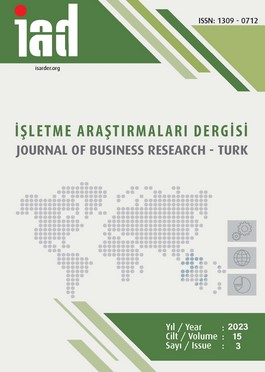Muhasebe Meslek Mensuplarında Mesleki Tükenmişlik Düzeyinin Saptanmasına Yönelik Bir Araştırma: Çorum İli Örneği
Determination of the Level of Burnout among Professional Accountants: The Case of Çorum Province
Author(s): Cihat SavsarSubject(s): Psychology of Self, Behaviorism, Demography and human biology, Accounting - Business Administration, Human Resources in Economy, Socio-Economic Research
Published by: Orhan Sağçolak
Keywords: Accounting Profession; Burnout Syndrome; Çorum;
Summary/Abstract: Purpose – The purpose of the research is to determine the burnout levels of professional accountants working in Çorum and to analyze whether there was a correlation between burnout levels and demographic factors including age, gender, experience, and salary levels. Design/methodology/approach – The sample used for the research consists of 444 qualified accountants who are employed in Çorum. The data was gathered using the survey approach. After obtaining the required authorization from the room they belonged to, the questionnaire form was generated online and distributed to the participants' email addresses. There are two primary sections to the questionnaire form. The demographic factors that make comprise the research's independent variables are included in the first section. The Maslach Burnout Scale, which has 22 questions, was taken place in the second section. SPPP 25 was used to examine the outcomes that were obtained. The scale's internal consistency was evaluated using reliability analysis, and to test the research's hypotheses, chi-square analysis was employed. Results – The results of the research show that around 65% of individuals had high levels of emotional weariness, about 57% have high levels of depersonalization, and about 61% have low levels of personal success. It is essential to avoid overstating the proportions of people who experience mild burnout across all criteria. The participants' lower levels of emotional tiredness and personal success may be found to be correlated with their degree of education. Additionally, it has been demonstrated that the participants' ages and the severity of their depersonalization are related. The relationship between work experience and burnout, however, was not discovered. Finally, it became apparent that there was a statistically significant relationship or dependence between the individuals' degrees of emotional weariness and their income levels. This instance illustrates how low-income professionals are more susceptible to emotional fatigue. Discussion – Although there is a relationship between depersonalization and the age of the profession's members, the absence of a connection between experience and depersonalization suggests that other aspects of life may also be at influence. It may be inferred that individuals of the profession should take steps to enhance their income levels given that income level has an impact on emotional tiredness.
Journal: İşletme Araştırmaları Dergisi
- Issue Year: 15/2023
- Issue No: 3
- Page Range: 2371-2385
- Page Count: 15
- Language: Turkish

